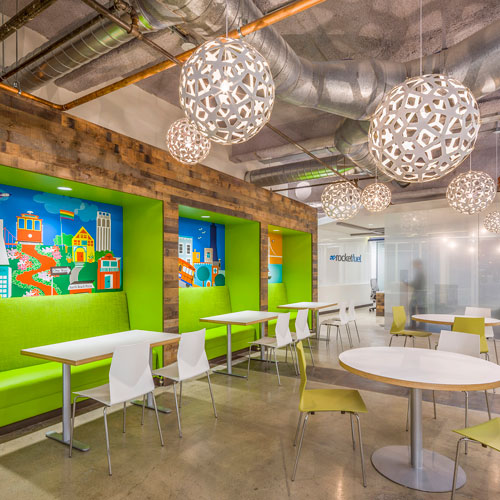
In 2010, Fresenius Medical Care North America (FMCNA) decided to make a major change to its property holdings in California. “We’d been operating a manufacturing facility in Walnut Creek and a distribution center in Pittsburg, so once our products were built, we had to send them 15 miles away,” says John J. Gioioso, senior director of corporate building operations and real estate for the company, which develops products and services for individuals undergoing dialysis because of chronic kidney failure. “We wanted to consolidate both operations under one roof and extend our current floor plan by 40 percent to accommodate current and future growth.”
All told, the development of a new facility ended up taking almost four years, from its early conceptualization to its opening in October 2013. It was a lengthy, complex process involving careful location scouting and adherence to critical technical specs, but it was also right up Gioioso’s alley.
He’s been with the company for 18 years, and as its corporate real estate advisor, he’s directly responsible for its large corporate properties and, in total, has been involved with 3,000 locations across North America. He reached his position after earning a master’s degree in facilities management from Cambridge College, and he’s since been designated a certified facility manager by the International Facility Management Association and a master of corporate real estate by CoreNet Global. In 2002, he even developed the real estate facility certificate-management program at Boston University, where he still teaches part-time. So, when it came time to update the FMCNA’s California facility, Gioioso took the same level-headed approach he has for decades, overseeing the work of the developer, coordinating best practices, and ensuring that the local project-management teams stayed on schedule and on budget.
The first step of the project was finding a proper site, which wasn’t easy given FMCNA’s desire to stay within the geographic reach of its employee base while obtaining a facility large enough to accommodate its expansion. “There was simply limited inventory,” Gioioso says. His company could have proceeded with a build-to-suit project, but it ultimately found an almost-perfect building at 4040 Nelson Avenue in Concord, California. “The location was right, but it needed to be larger,” Gioioso adds.
The renovation of the building in Concord wasn’t seamless, largely because of the specific elements left by its former occupant. Siemens, another manufacturer, had 15 employees working there in a “bunker” of sorts, a structure used to produce high-radiation products. To move forward with its plans, FMCNA had to knock down the bunker, and it had to do so in a timely manner. “We didn’t want to go into holdover in our location in Walnut Creek because it would have cost a lot of money in lease penalties, so our construction timeline was severely impacted,” Gioioso says.

FMCNA also ensured the existence of proper trucking routes into the building. The company has to use 18-wheelers to transport the heavy equipment used to manufacture its hemodialysis machines, but the existing roads surrounding the Concord location were narrow, so FMCNA consulted with civil engineers to see whether the roads could handle the load or whether they needed to be adjusted. “If we couldn’t get trucks in, we couldn’t deliver the product,” Gioioso says.
Maintaining workflow while changing locations was also essential. “We have approximately 500 skilled workers operating seven days a week, 24 hours a day, and we didn’t want any production downtime,” Gioioso says. So, FMCNA hired an industrial engineer to coordinate machinery design in conjunction with design and development plans. “It was an added complexity because you then had a separate group taking a look at the machinery that goes into the shell created by an architect to meet code, but it was necessary,” Gioioso says.
Originally, the building FMCNA leased had 85,000 square feet of manufacturing space; after expansion, it had 134,000 square feet, with an additional 44,000 square feet of warehouse space, which gives the company plenty of room to handle growth—and its growth is expected to be stunning. In May 2014, FMCNA’s parent company, Germany’s Fresenius Medical Care, said it expects sales to almost double from $14.6 billion in 2013 to about $28 billion in 2020—a cumulative average growth rate of about 10 percent annually between 2015 and 2020. FMCNA is a big part of that, representing 66 percent of the company’s second-quarter 2014 revenue, according to its quarterly fact sheet. And with its new facility, it’ll be ready to handle the load.



